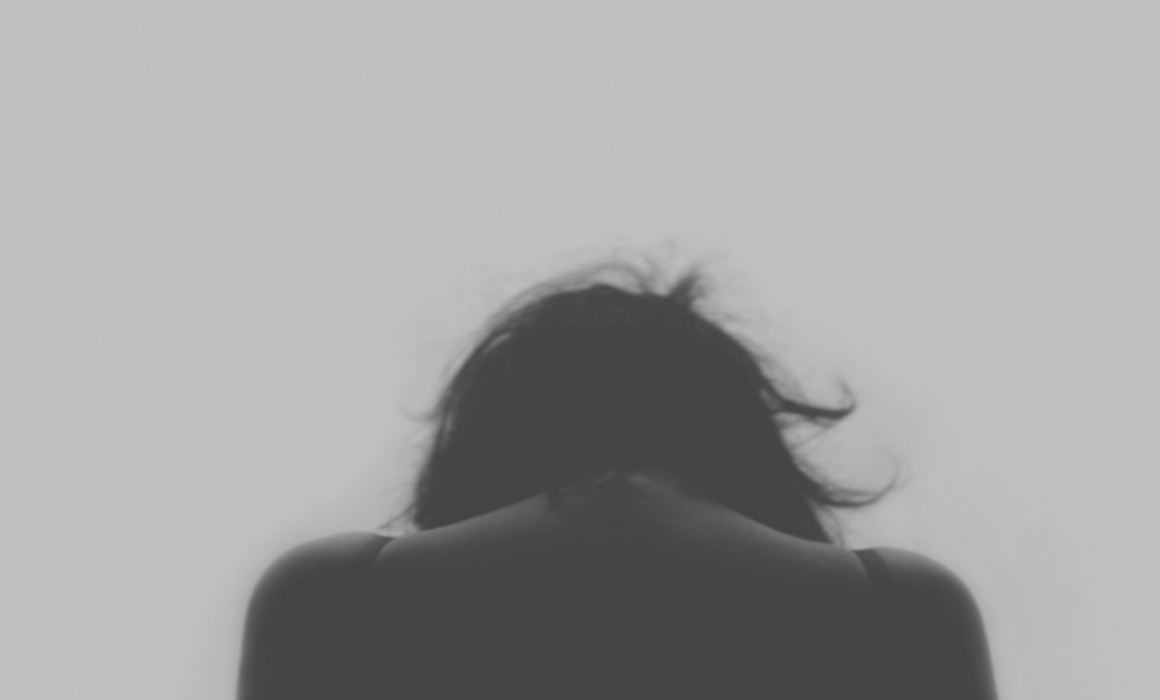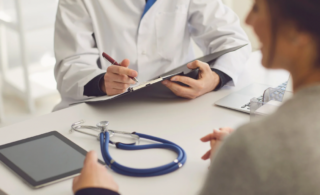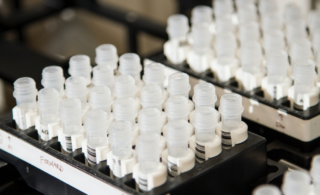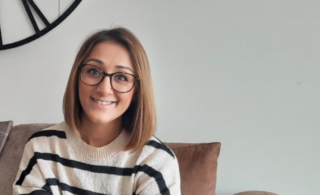
Let's Nail Breast Cancer - Help support our urgent appeal on the 19th - 20th May 2024
Let's Nail Breast Cancer - Help support our urgent appeal on the 19th - 20th May 2024
Let's Nail Breast Cancer - Help support our urgent appeal on the 19th - 20th May 2024
Let's Nail Breast Cancer - Help support our urgent appeal on the 19th - 20th May 2024
Let's Nail Breast Cancer - Help support our urgent appeal on the 19th - 20th May 2024
This article describes how one woman has dealt with the “After-Shock” of having had cancer and gives some practical advice for those of you at the end of your treatment.
By Joh
Until you’ve experienced a cancer diagnosis first-hand, it’s nigh-on impossible to really understand the many and varied effects of the disease and its associated but oh-so-necessary treatments. BBC (Before Breast Cancer), I figured, as do most people, that patients have treatment and then return to going about their daily business as they did previously. It was also my belief that when the pesky treatment concluded, patients would obviously rejoice at the finality of the cutting, poisoning and burning that had occurred. Alas, I discovered that this was, in fact, not the case.
The whole experience of a breast cancer diagnosis can be likened to the natural phenomenon that is an earthquake. We know that breast cancer happens, and research has given us additional insight into risk factors and genetic influences, in the same way that seismology allows scientists to understand when and where earthquakes might occur. The term ‘earthquake preparedness’ refers to the measures taken to minimise the effects of an earthquake. This might be the act of attending routine mammograms or engaging in self-checking practice; that is, early detection is best. Next up in the seismic world, are the use of pre-warning systems, demonstrated in the breast cancer context as being advised to “bring someone with you to the next appointment” when you start on that road of attending scans and biopsies.
Of course, all the warning systems in the world cannot prevent the mainshock, the bit that you know is happening but can barely recall, the bit that you don’t believe but regularly revisit in hi-definition detail, the bit where you were definitely told that in no uncertain terms you have breast cancer. We know from news coverage in Japan, the United States, Italy, or even here in sunny England, that it’s not just the mainshock that does the damage, that it’s just as much about the aftershocks. The aftershocks in this analogy are the treatments which are just as devastating, if not more so, than the original earthquake itself.
Surgery, chemotherapy, and radiotherapy are all grossly underestimated in terms of both their short-term and long-term or late effects, and it is the latter that I want to talk about here. According to seismologists, the effects of earthquakes include, but are not limited to, shaking and ground rupture, landslides, fires, soil liquefaction, tsunami, floods, and human impacts. In real-life, cancer survivorship terms, we’re talking fatigue, pain, guilt, poor body image, shattered confidence, fear, lost relationships, depression, anxiety, menopause, infertility, and anger. The questions of “What on Earth just happened?”, “I’ve finally finished treatment so why do I feel like this?”, “Does everyone feel like this or is it just me?”, “What can I do to start feeling better?”
Yes you’ve completed your treatment, thanked your healthcare professionals and been sent on your merry way (barring mammograms, Herceptin infusions, Tamoxifen tablets and follow-up appointments), but alongside the farewells to your medical team, lurks a fear; a removal of your proverbial safety blanket that has been provided to you for the last 6, 9, 12 months, or longer. The fear of recurrence is huge, yet it is common. I don’t know a single survivor that hasn’t experienced this, so I advocate arming yourself with knowledge of what to keep an eye out for. It might feel overwhelming now, but the fear does lessen as the weeks, months and years pass by.
The end of active treatment inevitably means more time to think about and process what has been happening to you. At the point of diagnosis, your brain pressed the big, red ‘Survival Mode’ button which is useful when the threat is real and near but becomes problematic when the danger has gone yet the panicky feeling remains. Fear is normal. It is what has kept humans alive for numerous millennia. However, the act of the brain being on high alert constantly leaves us anxious, stressed, and exhausted with many people finding themselves reliving moments from their diagnosis or treatment. In the same way that ‘non-patients’ vividly recall where they were when they heard the news about Princess Diana or 9/11, survivors often remember in explicit detail the moment they found out they had cancer, or the first time they found themselves holed up inside a linear accelerator ready for radiotherapy.
For months after my own treatment, my stomach would lurch whenever I reached a specific roundabout that I always had to cross on my way to chemotherapy, and anything bright red would bring me out in a cold sweat for fear that it was the drug Epirubicin, coming back to make me feel like a dementor was sucking out my very soul. Post-traumatic stress disorder (PTSD) is experienced by many cancer patients and its little surprise that this is the case. PTSD forces you to relive experiences with the misguided subconscious notion that you’ll be better prepared for a repeat in the future. However, this hyperarousal prevents you from being able to process the original event and move past the trauma. Those with PTSD typically have higher than normal levels of adrenaline, the hormone that gives us the ‘fight or flight’ reaction, even after the danger has passed. It is this hormone that produces the hyperarousal and strange emotions following treatment.
The primary thing to know is that you’re not on your own. Without wishing to demean your own experience, you’re not the first person to have survived cancer and you won’t be the last – not yet anyway. Others before you have trodden this wonky path and it is because of this that help is more available now than it ever has been before. Cognitive behavioural therapy (CBT) can be accessed either privately or via the NHS and can be useful in retraining the brain to think about things differently which can then influence a positive behavioural change. I completed a course of trauma-focused CBT, and can very much attest to its success, for me at least. Eye movement desensitisation and reprocessing (EMDR) is a relatively new treatment that can help to combat trauma as well as anxiety and depression.
Beyond the usual psychotherapeutic and talking therapies, there are lots of things you can do to ease your transition from patient to survivor and again, from survivor to thriver. Journaling is a great idea and works in a similar way to counselling in that you’re actively getting thoughts out of your head and onto a different medium, allowing your brain the space to recover. I often find in my own diary entries that I start out with a problem and as I write, I am contextualising my emotions, rationalising my thoughts, and either finding a solution or just simply accepting the current situation. Further to this is art journaling, which I did a taster of via a charity that is local to me. It was a very cathartic process of ‘free writing’ whatever came into my head and then covering it with paint and inspiring words taken from magazines and papers.
Mindfulness is the buzzword of the 21st century but it really does have benefits. This can take so many forms and really just requires to be in the moment, whether it be singing or walking in nature, taking a beautiful-smelling bath or simply enjoying a brew in your favourite mug, mindfulness is about experiencing a minute or two (or longer if you wish) just being, without expectation or judgement. The experience of a cancer diagnosis and treatment is similar to the path that is followed in grief after losing a loved one. You are grieving for a loss of vitality, a loss of hair or breasts, loss of relationships, loss of safety and stability, and loss of what you had planned for your future. Be kind to yourself, lower your expectations, and take the time to process and recover from the assault your body and mind have just endured.
Useful links
- Recurrence – https://breastcancernow.org/information-support/facing-breast-cancer/living-beyond-breast-cancer/life-after-breast-cancer-treatment/coping-emotionally/breast-cancer-recurrence-symptoms
- Breast Cancer Now (general resources) – https://breastcancernow.org/information-support/facing-breast-cancer/living-beyond-breast-cancer/life-after-breast-cancer-treatment
- Breast Cancer Now (Moving Forward course) – https://breastcancernow.org/information-support/support-you/moving-forward-after-breast-cancer-treatment
- Macmillan – https://www.macmillan.org.uk/information-and-support/coping/your-emotions/dealing-with-your-emotions/your-feelings-after-cancer-treatment.html
- Journaling – https://journaltherapy.com/journal-cafe-3/journal-course/
- Art journaling – https://www.coreartjournaling.com/
March 2020
To return to the homepage of our Information Hub, click here where you can access more helpful information, practical advice, personal stories and more.
Future Dreams hold a range of support groups, classes, workshops and events to help you and your carers during your breast cancer diagnosis. These are held both online and in person at the London-based Future Dreams House. To see what’s on offer and to book your place, see here.
March 2020 (Reviewed February 2024)
This article was written by a guest author based on their own experience of breast cancer and its treatment. It is important to note that this is one person’s experience and that whilst there may be commonalities between the experiences of different people, everyone has a different diagnosis/treatment plan/general experience. The information and content provided in all guest articles is intended for information and educational purposes only and is not intended to substitute for professional medical advice. It is important that all personalised care decisions should be made by your medical team. Please contact your medical team for advice on anything covered in this article and/or in relation to your personal situation. Please note that unless otherwise stated, Future Dreams has no affiliation to the guest author of this article and he/she/they have not been paid to write this article. There may be alternative options/products/information available which we encourage you to research when making decisions about treatment and support.
Share

Support awareness research
Donate to those touched by BREAST cancer
Sylvie and Danielle began Future Dreams with just £100 in 2008. They believed nobody should face breast cancer alone. Their legacy lives on in Future Dreams House. We couldn’t continue to fund support services for those touched by breast cancer, raise awareness of breast cancer and promote early diagnosis and advance research into secondary breast cancer without your help. Please consider partnering with us or making a donation.



